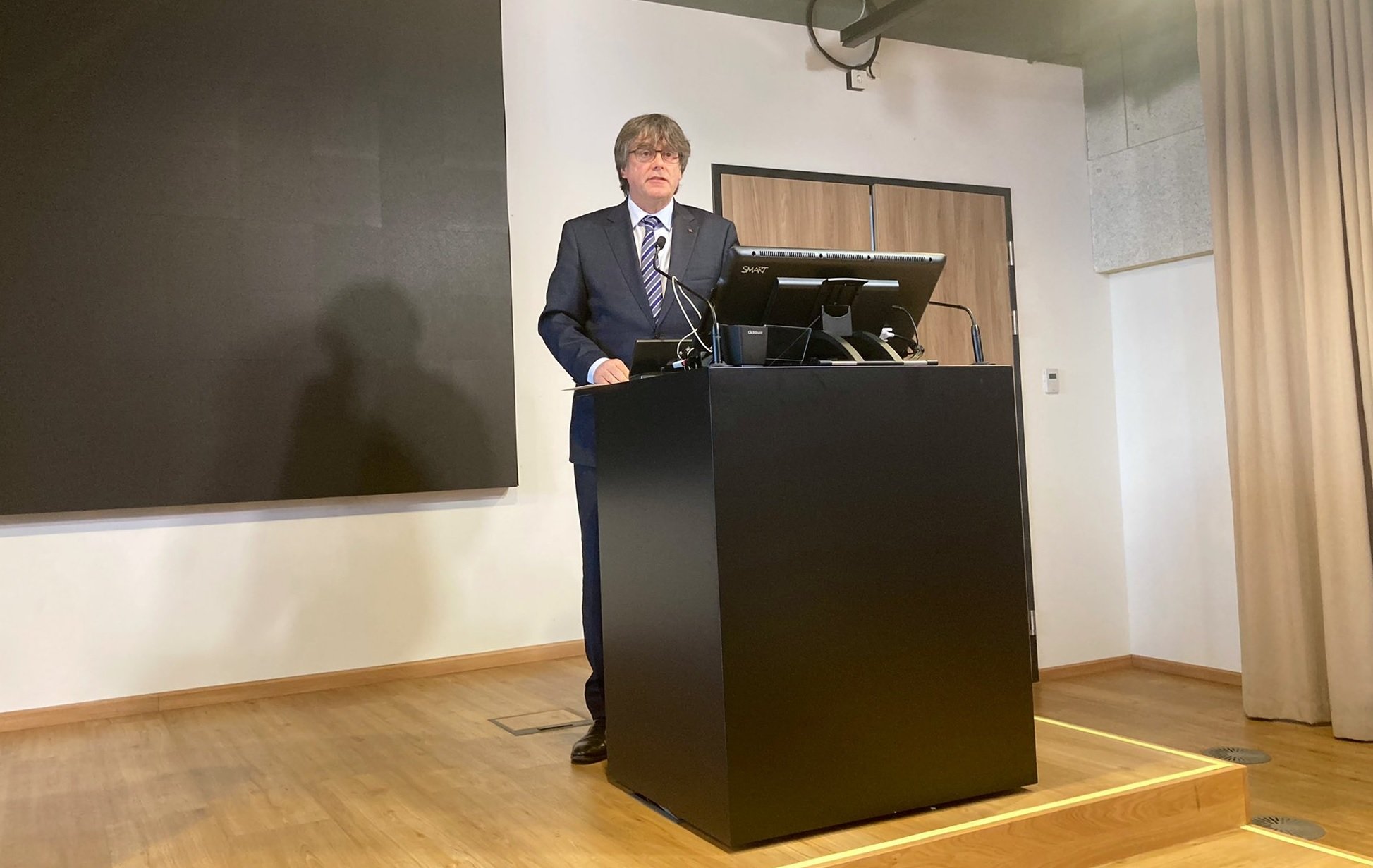Catalonia's president in exile, Carles Puigdemont, delivered a speech this Thursday to an audience at the Central European University in Vienna, Austria, one of the most prestigious universities on the continent. His address was part of a visit intended to contribute to the international awareness of Catalonia's political situation, and to enable analysis of the framework of an independent Catalonia within the European Union. For the first time, the MEP spoke openly about the current situation of the Catalan government and expressed confidence that coalition leader ERC would respect the 2021 accord made with its partner Junts to form the pro-independence government: "Together we're stronger". At the same time, Puigdemont emphasized that it is "normal" for Junts to urge ERC to respect the points that were agreed in the deal and he made it clear that the review being carried out by the party he formerly led is not an "ultimatum".
In this context, the former president took part in a conference entitled 'The Contestation of Statehood and Sovereignty in Europe: The Case of Catalonia', which was a round table discussion before a large audience. During his speech, Puigdemont explained the experience of the referendum on independence from Spain, held on 1st October, 2017, and had the opportunity to defend that "the Catalan revolution is radically democratic".
Although he shared the historical context of the Catalan case (going back to the 17th century Spanish War of Succession and the fall of Barcelona in 1714) and also the economic one (in which he pointed out how today the fiscal balance weighs against the interests of Catalonia), Puigdemont remarked that the independence movement in Catalonia does not have these reasons at its root. "Ours is not a typical nationalist revolution with a strong ethnic component and a slogan of the 'one nation, one language' type," he said. "We haven't made our lives difficult in this way just to replicate Spain on a smaller level, changing the name and the flag but maintaining an antiquated state."
By contrast, emphasized the Catalan president in exile, what the independence movement seeks is to abandon Spanish anti-democratic practices and achieve a much more inclusive and permissive model. "Let no one be sent to prison for their political opinions, or for singing songs against the king. Let's have a state whose citizens are not spied on and where the monarchy is not sacrosanct", he wished. A deep conviction that it is impossible to change Spain in these matters - from within - has led "a majority of Catalans" to struggle for independence, he told the audience.
Furthermore, he also referred to the repression that independentism has suffered, pointing out that the Spanish state allows Catalan pro-independence politicians to participate in the elections, and also to win them - but they can never fulfill their electoral programme. "If you do it, as I did, you risk spending 15 years in prison or your whole life in exile," he affirmed. "The arrogance of states has made it impossible to change the law that has marked humanity," he said, referring to the ban on allowing independence processes. On the contrary, he defended that a state should not be able to impose itself on citizens, but should give reasons for people to be happy to stay within it. "If a nation is not represented by the state and sees no possibility of change, it has every right in the world to choose self-determination. That is democracy," he declared.
Trip to Austria
On Wednesday, as part of his stay in the Austrian capital, Carles Puigdemont delivered a private address at the Akademische Forum für Außenpolitik (Academic Forum for Foreign Policy) on the impact on Europe of a future independence of Catalonia. During his speech, the president recalled that the independence of Catalonia was declared five years ago and that the period from then until now has been marked by repression and the violation of fundamental rights, which "has only served to demonstrate why Catalonia wants independence".
This Thursday morning, Puigdemont attended the exhibition 'Vilana-Perles, a Catalan at the Court of Charles VI' at the delegation of the Catalan government in Vienna. In addition, the office's representative, Krystyna Schreiber, showed him the cultural diplomacy activities they carry out, such as the dissemination of the history that Catalonia and Austria shared during the Spanish War of Succession, and the recent collaboration agreement between the town councils of Oliana, in Catalonia's Alt Urgell county, and Biedermannsdorf, in the state of Lower Austria. Also on his agenda was the Austrian Parliament, where he met with several political representatives, including the federal deputy Petra Bayr of the Austrian Social Democratic Party.

